Archive
16 February 2020
Waiting for the perfect storm
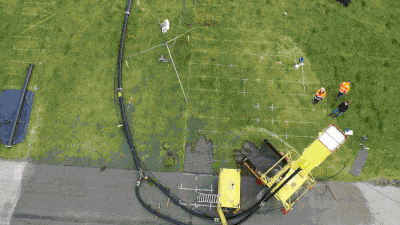
For months hydraulic engineer Patrick Oosterlo has been waiting for a heavy storm. One that can truly test his equipment that was installed in and on a dike on the coast of the eastern Wadden Sea. He needs high waves and strong winds to decide: is this dike high enough?
14 February 2020
Postdoc (PhD) position
Development of a probabilistic design method for rock groynes
13 February 2020
Master Thesis Opportunity
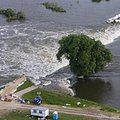
The inclusion of flood defences in flood hazard maps.
11 February 2020
Detecting plastic waste in rivers using drones
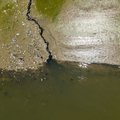
Rivers take vital water to villages and cities, but unfortunately they also carry harmful plastic to oceans. In order to prevent this, we need to find out exactly where the plastic comes from and how it is distributed over time and space. Counting plastic waste items from bridges is one of the commonly used methods to do this. But then how can the huge amounts of plastic in inaccessible places be pinpointed? Master student in Hydraulic Engineering Marlein Geraeds spent her internship at The Ocean Cleanup investigating how to monitor plastic waste in Malaysia’s River Klang by means of drones.
05 February 2020
The breathing of dikes
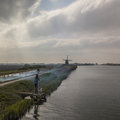
When looking at a dike, you wouldn’t be able to detect any motion in this robust structure. Though in fact there is. On a millimetre level, dikes expand and shrink in relation to the weather conditions. Ece Özer showed that observing this ‘breathing’ of dikes could help prevent catastrophic flooding events. She used this feature to create an innovative model based on satellite data to better detect weaknesses in a dike.
04 February 2020
Not a band-aid but a feeder solution for our coasts
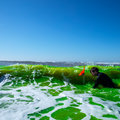
At the weekend Matthieu de Schipper likes to surf the waves but on weekdays he studies how they transport the sand along the coast and up and down beaches. ‘Sea level rise is a threat to coasts across the globe. I want to use the forces of nature to provide engineering solutions to this problem on a global scale’. At the Sand Motor project in the Netherlands De Schipper is training students to do the necessary fieldwork. In all weathers.
01 February 2020
What the Wadden can teach us
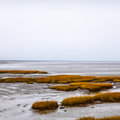
Intertidal zones are crucial for the protection of our coast and as stop-overs for migrating birds. But, increasingly, many of these sand and mudflats are disappearing permanently underneath the waves. Cynthia Maan investigated how by cooperating with nature and using a systems-based approach these precious resources can be saved.
31 January 2020
New staff member: Hassan Niazi

We warmly welcome Hassan in our department! Click here to read his introductory words.
30 January 2020
MSc Thesis proposal
Building with Nature Solutions in Flood Defenses. Looking for a student to start straightaway (early 2020).
25 January 2020
Plastic-free Rivers
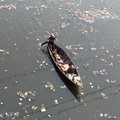
The oceans of the world are filling up with plastic waste carried there by rivers. Where it all comes from no one knows. Wim Uijttewaal, professor of Experimental Hydraulics and professor of Resources & Recycling Peter Rem are on a mission to make the rivers plastic free. ‘We want to turn the removal of plastic from rivers into big business. And we want to devise a plastic waste radar that will show where the plastic is, and how it got there.’